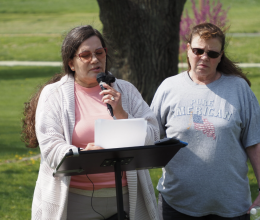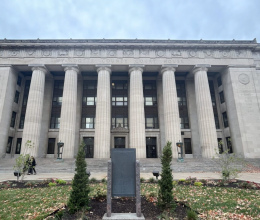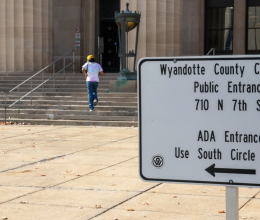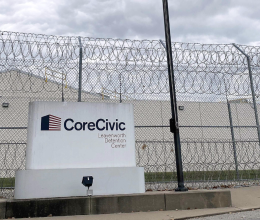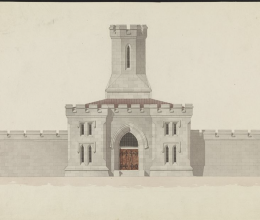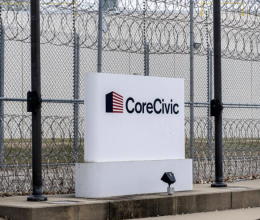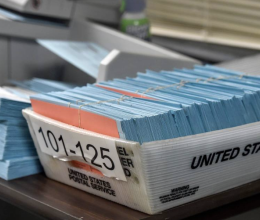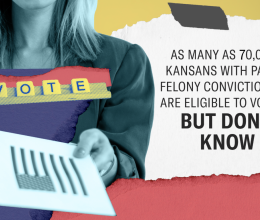
ACLU of Kansas resolved to ensure 30,000 Kansans eligible to vote post-felony know their rights and get registered
FOR IMMEDIATE RELEASE
Friday, November 17, 2023
CONTACT: Esmie Tseng, Communications Director, ACLU of Kansas, [email protected]
OVERLAND PARK, KAN. – As many as 30,000 Kansans have the right to vote after completing sentences for felony convictions, but many are not aware of their rights. A new effort launched by the ACLU of Kansas will work to inform them of their restored voting rights, recruiting volunteers to help ensure that their neighbors know their voting rights have been restored—and that they get registered and get to the polls.
“Many Kansans don’t know their voting rights have been restored after they complete probation or parole, but the law is clear that they have the right to vote,” said Micah Kubic, Executive Director of the ACLU of Kansas. “We invite everyone in our state, including and especially election and corrections officials, to join us in this work to inform our fellow Kansans when they are eligible and how to register to vote. We should all be resolved to ensure that people who have returned to their families – who are caring for their children, working, and paying taxes – also have a meaningful opportunity and a clear path to make their voice heard, as we continue the ongoing project of building a truly inclusive and accessible democracy.”
Kansas has a partial felony disenfranchisement framework in that a felony conviction does not permanently remove one’s right to vote. Instead, under the relevant Kansas statute, once someone has completed their sentence, including any term of incarceration and supervised release, their voting rights are restored. Additionally, being required to register under the Kansas Offender Registration Act does not impact whether someone is able to vote.
“Felony disenfranchisement laws have an ugly history that cannot be separated from the cruel and racist origins of our country’s carceral system in the post-Civil War era that still disproportionately targets and impacts Black people, people of color, and the poor,” said Eliza Barr, Executive Director of Reaching Out from Within. “Withholding access to vote – even if that’s just through voter confusion or lack of clarity – still prolongs punishment against those who have already served their sentence. When Kansans have had their voting rights restored, we should be enthusiastically empowering them to register to vote if they wish to. Anything short of proactively including system-impacted Kansans in the voting process contradicts what it means for us to be the Free State.”
Nationwide research has found that restoring voting rights after felony convictions actually improves public safety. An April 2023 report by The Sentencing Project and other studies have found a lower likelihood of re-arrest in states where voting rights are restored post-incarceration and that among people with a prior criminal history, those who vote have a lower rate of re-arrest at 12%, compared to 30% for those who do not vote. Further research has found links between the right to vote and civic participation with developing a prosocial identity and the intention to remain crime-free.
“Those of us who have been system-impacted understand the real-life consequences of our state’s policies firsthand and are valuable not in spite of our experiences with the system, but because of them,” said Latanya Goodloe, Executive Director of Ladies that Lean. “These are perspectives and voices that should be included in our collective decision-making. For many system-impacted people, voting is one way to meaningfully have that second chance and actually return to the community. When a debt is paid, it is paid – and we should be fully and clearly communicating that in our democratic process.”
Kansas is among the half of states with more extreme voting rights restrictions that are based on prison, parole and parole or that permanently restrict the right to vote post-sentence as well. 24 states, including New Mexico, Illinois, Indiana, Ohio, and Utah, only restrict the right to vote while someone is in prison. Meanwhile, Vermont, Maine, and Washington, D.C. have none of these restrictions.
Through this effort, the ACLU of Kansas plans to connect with and secure pledges to register from at least 2,400 eligible voters. This work will rely on significant direct contact with impacted individuals and volunteer engagement. Impacted individuals and anyone interested in volunteering with the effort can find more information at www.restoremyvoteks.org.
# # #
About the ACLU of Kansas: The ACLU of Kansas is the statewide affiliate of the national American Civil Liberties Union. The ACLU of Kansas is dedicated to preserving and advancing the civil rights and legal freedoms guaranteed by the United States Constitution and the Bill of Rights. For more information, visit our website at www.aclukansas.org.
About Ladies That Lean: Ladies That Lean provides prevention and re-entry support for women in the Kansas City metro area who are leaving the incarceration system. For more information, visit www.ladiesthatlean.com.
About Reaching Out from Within: Reaching Out from Within (ROFW) was established in 1982 in Kansas as an incarcerated-led program that empowers residents to transform themselves and heal each other. ROFW is a national leader in rehabilitation programs for incarcerated individuals, and utilizes factual based concepts, welcoming volunteers and incarcerated men and women of all clerical and belief systems. ROFW’s rehabilitation program offers an opportunity for a “whole person” transformation for incarcerated individuals who want to make lasting changes in their behavior in order to become a role model for nonviolence, while still incarcerated, and becoming contributing members upon their return to our communities. For more information, visit www.rofw.org.
